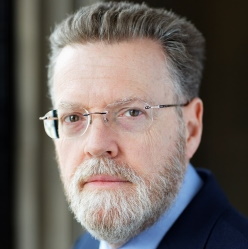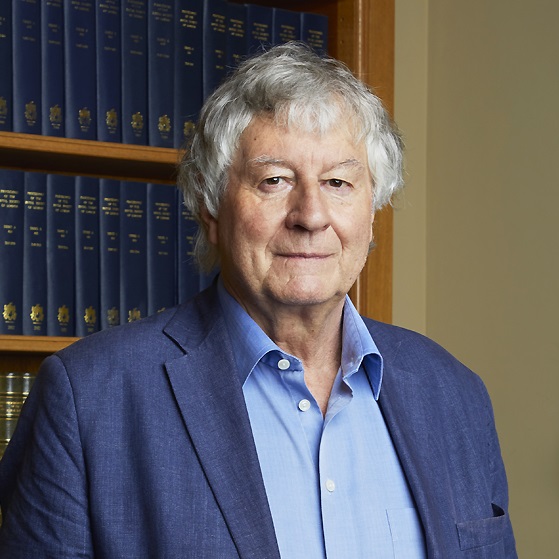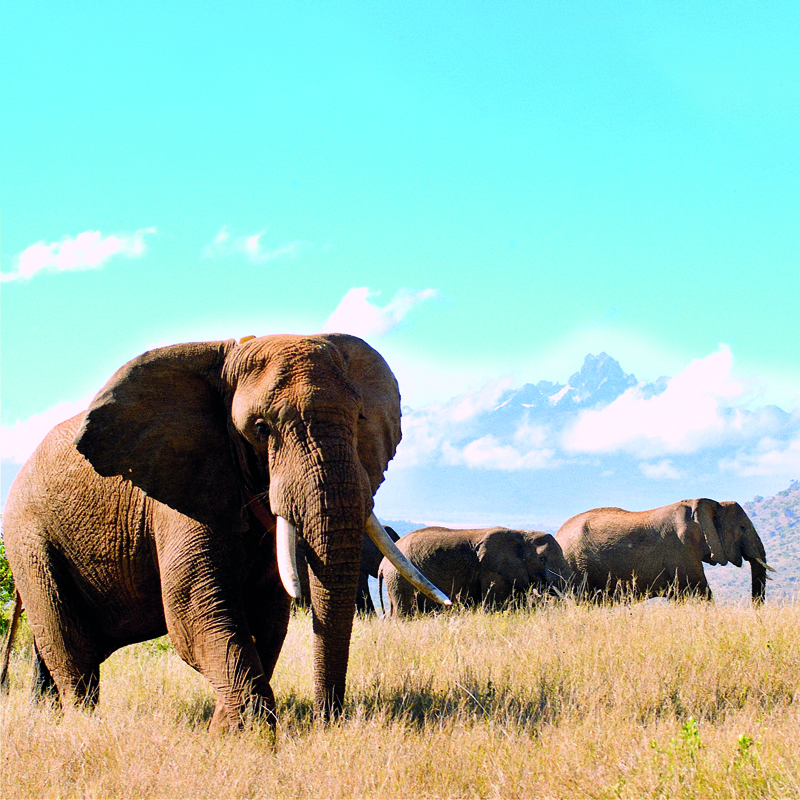Professor Sir Keith Burnett FRS writes following the Royal Society's recent workshop with the Chinese Academy of Sciences on Artificial Intelligence.

I would like to begin by saying how very pleased I was to be asked by the Royal Society to write this blog following our recent workshop with the Chinese Academy of Sciences on Artificial Intelligence (PDF).
Beyond the impact of the pandemic - and partly accelerated by it - few subjects are as fundamental and challenging for Science and wider society than the impact of technology on our lives and work. Artificial intelligence in particular feels like a new frontier with uncertain consequences.
Questions about the impact of AI on our lives abound. Many of them are sparked by the fear and insecurity which often accompany transformational change. Will I still be able to get a job or will technology make it redundant? Will AI ease our problems or create new and disturbing changes to our experience as citizens? What sort of privacy can we expect and who will decide how these technologies are used for good?
Sometimes change comes into our lives without warning. Since the beginning of 2020, Covid-19 has been transforming the world we knew, and its implications are not yet fully clear. A major shift to greater reliance on technology feels inevitable in everything from retail to healthcare and education to the economy. There are other external changes to consider too. Sadly, we cannot help but be aware of heightened political tensions between China and the collection of very different nations we call ‘the West’.
So it was an intense and timely pleasure to sit down, courtesy of Zoom, with leading scientists from the Chinese Academy of Sciences and Fellows of the Royal Society, to talk about the real issues and questions we see, rather than the lurid tales of science fiction and sensationalist headlines.
We came together with a common understanding that technology and AI present some huge and significant challenges for the most important Science we can undertake. But we also recognised there were many unknowns. What can it actually achieve? What are its most important capabilities?
As scientists who share a commitment to questions and seeking evidence, we were wary of assuming that our starting place is all it should be, no matter its promise. Are the AI tools we have at the moment really able to address the key problems of Science in this age? I sensed between us both possibility and trepidation.
For hundreds, perhaps thousands of years, progress in Science has owed much to breakthroughs in technologies which allow us to explore the universe and ourselves - telescopes and microscopes, lasers and the great Hadron Collider. Just think of those who have opened new vistas of understanding, since the Royal Society was founded in 1660 as an ‘invisible college’ of natural philosophers and physicians committed to verify all statements by an appeal to facts determined by experiment.
Let’s take one relatively recent example from the period of my own career as a scientist. A tool designed in the late 1980s to facilitate the sharing of information between physicists at CERN by my colleague Tim Berners-Lee, revolutionised the sharing of information across the world. The World Wide Web gave us an extraordinary ability to make connections and share our insights in new ways.
These new technologies continue that trajectory of digital transformation. In recent years we have seen the triumphant success of data analysis and the importance of neural nets. Computer packages tailored for use by scientists have been underpinned by the phenomenal growth of cloud based super computers, amplifying our ability to analyse at speed. Yet as scientists, we are right to be wary of too much hype. We need to be sure we aren’t neglecting the areas where our current capacity is inadequate.
Scientists in the UK and China are right to be especially mindful that we do not limit how we frame problems or constrain our understanding of how to address the challenges we face. We should admit that we still know very little about how AI really works within the wider context of Science and why it is so extraordinarily effective at resolving some problems and not others. At such a moment, we require humility and openness.
This is another reason to come together with our colleagues from across the world. We are all at the foothills of this field of endeavour, and our own perspectives may be inadequate or vulnerable to cultural blind spots. This is a time to learn together.
True the potential of AI is inspiring. In my own experience of mentoring early career scientists from around the world, I’ve had a ring-side seat at the extraordinary impact of machine learning techniques on Science and Medicine. For a young scientist, getting to grips with machine learning is now a capability in many fields. The importance of this fact has led Schmidt Futures to work with Neil Lawrence at Cambridge University on a new Centre to train scientists in these vital techniques.
In China, similarly exciting work is underway. The Institute of Automation in Beijing has opened a new centre for brain-inspired intelligence and China has begun planning for new generation AI. This means closing the technology gap with leading countries, funding research, advancing technological development and applications at leading level by 2025, and aiming to be a global leader in research and ethical principles for AI development by 2030. This will demand a combination of basic research, technology development, infrastructure and education but - if our discussions at the Royal Society are anything to go by - there is serious commitment from China to achieving these aims.
Yet how sad it would be for Science and the world if we undertook this work on parallel tracks rather than in dialogue with one another. The coming together of our two great scientific bodies is a precious signal that we want to avoid this error.
We are thinking as colleagues about what we really need for the future from technology but also from ourselves. These are not necessarily technological questions, but human ones. What’s missing in our understanding? How can we ensure we do not overlook the significance of the ‘roads not taken’?
Coming together from our different perspectives and cultures reminds us not to be complacent about how we frame such questions. I think of my long conversations over the years with my Chinese colleagues about the significance of Science to improving the lives of our fellow human beings, and it gives me hope that we can put this powerful technology to good use.
Humility is an important starting point for each of us. Just think of the scale of work on AI in China, a country with 30 times the UK population. What would it mean for the world if China were, with us as partners, to truly understand the role of machine learning in smart cities, the efficient use of energy or assessing infection and disease in a vast and changing demographic? What matters is not the AI race but its human purpose.
As Chinese and UK scientists came together, we reminded one another there are enormous benefits in having trusted collaborations. This means focusing on AI’s benefits and avoiding its risks – including those which we might not anticipate but are of concerns to others.
But I would remind those of us in the UK, that it would be absurd to try contain thinking about AI in the UK or any political domain when almost every one of us has a handheld computer called a smartphone largely made in China. Instead, we need and want to understand how other nations will think about these issues.
How will we have those crucial scientific, practical and ethical discussions? In my role as chair of the Nuffield Foundation, I have seen international efforts to create a place where issues can be addressed head on. It’s why we founded the Ada Lovelace Institute as an independent agency along the lines of the Nuffield Council for Bioethics, to consider issues on behalf of all our citizens.
Public opinion on AI is also changing. Western concerns for the primacy of individual privacy and autonomy, for example, are being revisited in the light of the potential to reopen society from the Covid lockdown. Newspapers report on debates about the potential value of vaccine passports, for example. Could we learn from one another now? I certainly listened carefully to the experiences our Chinese Academy of Sciences colleagues as they explained the benefits of health tracking to the citizens of Beijing.
Health is, of course, the most immediate and obvious example of the benefits of AI. We have seen wonderful breakthroughs in the identification of diseases such as cancer. Machine learning is rapid and uniquely adept at finding the ‘needle in the haystack’ and in recognising tumours in the human body. By comparing individual images against vast data sets, diagnosis can happen with an accuracy and speed that allows for more effective early intervention. Now we are thinking about how it can help the fight against Covid as we race to contain infection and get ahead of new variants.
The history of science teaches that it is very difficult to know where a new technology will lead, owing as much to those who deploy it as the technique itself. Development that are important to medicine, energy, the production of food or insights into the universe, have been used to improve lives and to destroy them. There is no simple way to ensure we make the right choices about how we use AI, but by working together, we will have a better crack at it.
The history of the Royal Society is a proud one recognised and honoured by our Chinese friends. Its Fellows have included Newton, Darwin, Einstein, Hawking, Dorothy Hodgkin, Jocelyn Bell Burnell and Tim Berners-Lee. But our understanding is incomplete if we only look for answers within our own number.
The mathematics we employ owes much to the Islamic world and the Middle-East. The great physicist Bose was of Indian ancestry, as was our former President Sir Venki Ramakrishnan. The transformative anti-malarial drug artemisinin has its origins in Chinese traditional medicine. It led to Youyou Tu being awarded the Nobel Prize in 2015 for discovering the properties of qinghaosu from the qinghao plant.
Now more than ever our scientific endeavour needs to be shaped by a willingness to learn from one another. Of its proud history the Royal Society explains, “We backed James Cook’s journey to track the Transit of Venus. We published the first report in English of inoculation against disease, approved Charles Babbage’s Difference Engine and published Chadwick’s detection of the neutron that would lead to the unleashing of the atom.”
As we stand now at another scientific frontier, I am deeply grateful that the Royal Society continues to look outwards, and that our endeavour is one which is open to the questions and insights of scientists of every nation. Our fellow scientists of the Chinese Academy of Sciences have much to teach us. It is this approach of learning from and with one another which will allow us to make the very best of the remarkable powers AI will give us.






